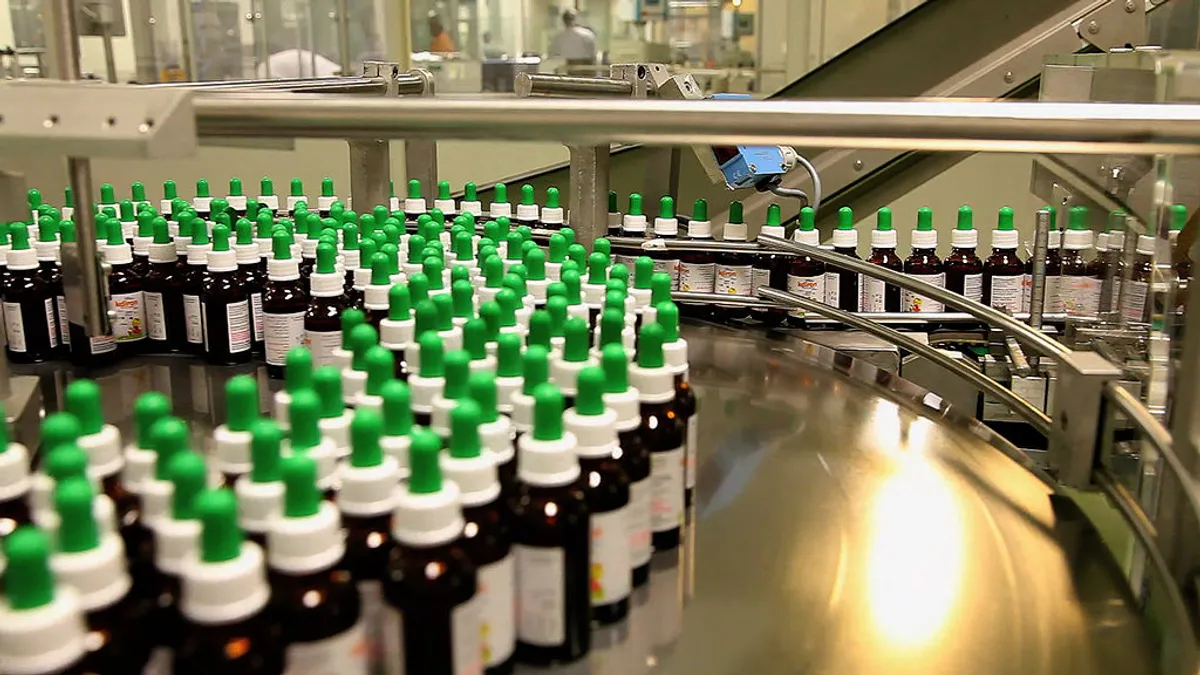Dive Brief:
- Just more than a year after the launch of the MediLedger Project, pharmaceutical industry stakeholders have created a second working group to evaluate blockchain use cases for financial transactions, Eric Garvin, one of the co-founders of the project, told Supply Chain Dive.
- The MediLedger Project includes many of the leading players in the industry, including two drug distributors and four Big Pharma companies. Together, the stakeholders hope to develop an interoperable solution that will make traceability seamless and usher in compliance with the Drug Supply Chain Security Act (DSCSA).
- Dale Danilewitz, CIO of AmerisourceBergen, told The Wall Street Journal this next phase of the project would expand the drugs and devices in the trial, and test verifications for returns from hospitals.
Dive Insight:
The pharmaceutical industry is making big strides when it comes to traceability, as the deadline to comply with the DSCSA inches closer.
The Act requires pharmaceutical industry stakeholders — including packagers, distributors, manufacturers and logistics providers — to be able to track and trace a drug's progress along the supply chain, thereby reducing quality control errors and the prevalence of counterfeit drugs.
"That's kind of the catalyst" of the collaboration behind the MediLedger Project, Garvin said, acknowledging the rarity of seeing such industry-wide cooperation on a project. "These are companies that are competitors, sitting in a room, trying to advance technology for a business need."
He said the project's goal was to deliver a complete saleable return system by the end of Q3 2018. Under that timeline, the pharmaceutical industry would have brought a project from proof-of-concept to market in less than two years.
The speed of development reflects not just the interest in blockchain, but its perceived applicability to the pharmaceutical industry's specific challenges. With myriad actors and countless products engaged in a global web of transactions, developing an interoperable system for an entire industry at times seemed like a pipe dream.
A pipe dream, however, which has spurred a new wave of investment and joint ventures on initiatives that may facilitate compliance. In just one example, Tracelink, a software-as-a-service traceability solution with more than 820 customers on its system, last week raised $60 million dollars in Series D funding to expand its product.
However, Garvin said MediLedger's vision is not to compete with these services, but to work with them as partners to build the interoperable system DSCSA advocates for.
The comments were in part in response to criticisms raised at a Johns Hopkins University summit, noting the large quantity of competing solutions for interoperability — blockchain or not — would become a challenge to industry adoption.
But Garvin said the strength of the project lay in the industry's support of it. In fact, he told Supply Chain Dive, Cardinal Health may also soon join the initiative, meaning all three major pharmaceutical distributors in the U.S. would be collaborating on the project.
"The premise behind MediLedger is that it's industry owned and we're focused on making it open architecture so that it can be adopted and used by other service providers," he said. "We don't see MediLedger competing with the Tracelinks and SAPs of the world."
The expansion of MediLedger's use cases to returns or financial transactions is only natural. Garvin said the project expects to conduct "more rounds of testing with industry partners this summer."















